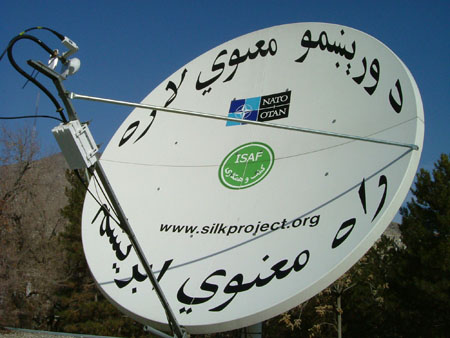Expanding internet connectivity in Afghanistan
Named after the Great Silk Road trading route linking Asia and Europe, the NATO Virtual Silk Highway (SILK) provides affordable, high-speed Internet access via satellite to the academic communities of the Caucasus and Central Asia. The SILK project is operational at Kabul University, Afghanistan, since 2006, and is now looking into expanding the network to the provinces.

Under the Declaration by NATO and the Islamic Republic of Afghanistan to maximize the potential of the Virtual Silk Highway, the NATO Public Diplomacy Division (PDD) Science for Peace and Security (SPS) programme is assisting the Afghan authorities in paving the way for developing their educational system.
Kabul area
In 2008, the NATO-PDD SPS programme connected all 14 faculties of Kabul University and the Ministry of Higher Education to a campus network, as well as setting up a video teleconferencing facility. Work is in progress to provide high-speed Internet access through the Virtual Silk Highway to other higher education institutions in Kabul, including the National Military Academy of Afghanistan.
Linking the provinces
In March 2008, the NATO Consultation, Command and Control Agency (NC3A) was tasked by NATO-PDD SPS to conduct a feasibility study on the potential provision of internet connectivity for universities outside of Kabul. The tender process for this expanded SILK project is currently underway, and implementation could start end 2009.
In the meantime, the Afghan Ministry of Higher Education has identified six universities as the first beneficiaries of the expansion: Herat University; Jawzjan University in Sheberghan; Kandahar University, Sheikh Zaid University, Khost Province, Balkh University in Mazar-e-Sharif; and Nangarhar University in Jalalabad.
